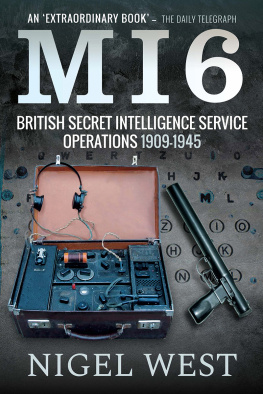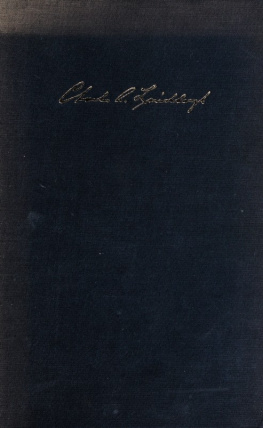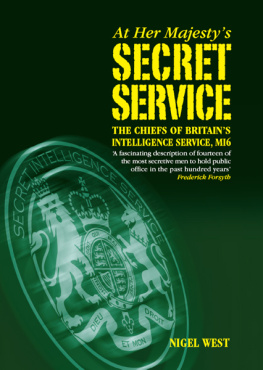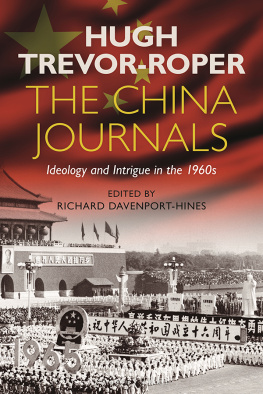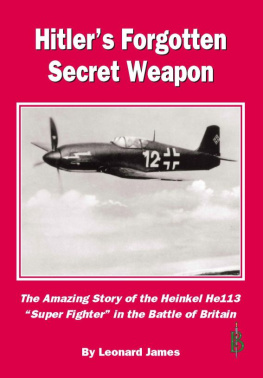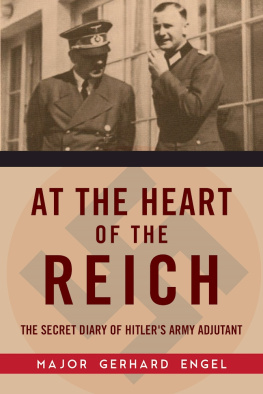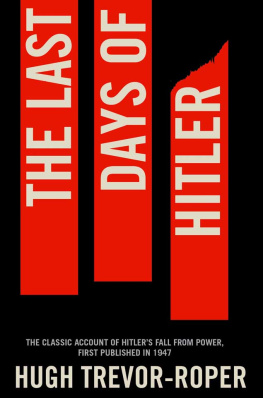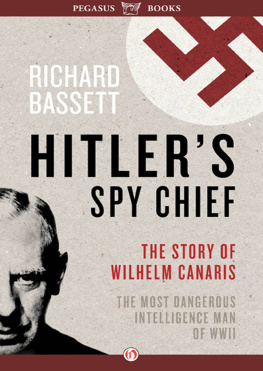Hugh Trevor-Roper was perhaps the most brilliant historian of his generation. An expert in the history of early modern Britain and Nazi Germany, he was Regius Professor of Modern History at Oxford University and latterly Master of Peterhouse, Cambridge. He received a life peerage in 1979. He was the author of numerous books, including his famous investigation of Hitlers last days. During the Second World War, Trevor-Roper served in the Secret Intelligence Service and this book contains his journals written during the war and in its immediate aftermath.
Richard Davenport-Hines is a Fellow of the Royal Historical Society and the Royal Society of Literature and a past winner of the Wolfson Prize for History. He is the author of many books, including A Night at the Majestic (2006) and The Pursuit of Oblivion (2001). He edited Hugh Trevor-Ropers Letters from Oxford (2006) and is a regular reviewer for the Spectator, Sunday Telegraph, Sunday Times, Literary Review and other publications.

Published in 2012 by I.B.Tauris & Co Ltd
6 Salem Road, London W2 4BU
175 Fifth Avenue, New York NY 10010
www.ibtauris.com
Distributed in the United States and Canada Exclusively by Palgrave Macmillan
175 Fifth Avenue, New York NY 10010
Copyright main text 2012 The Literary Estate of Lord Dacre of Glanton
Copyright introduction, notes, references 2012 Richard Davenport-Hines
The right of Hugh Trevor-Roper to be identified as the author of this work has been asserted by The Literary Estate of Lord Dacre of Glanton in accordance with the Copyright, Designs and Patent Act 1988.
All rights reserved. Except for brief quotations in a review, this book, or any part thereof, may not be reproduced, stored in or introduced into a retrieval system, or transmitted, in any form or by any means, electronic, mechanical, photocopying, recording or otherwise, without the prior written permission of the publisher.
ISBN: 978 1 84885 990 6
eBook ISBN: 978 0 85773 011 4
A full CIP record for this book is available from the British Library
A full CIP record is available from the Library of Congress
Library of Congress Catalog Card Number: available
Contents
Editorial
Acknowledgments
My chief debt is to Professor Blair Worden, literary executor of Lord Dacre of Glanton, for entrusting the editing of these journals to me. His advice during the editorial process has been a model of delicacy, good sense and gaiety. Judith Curthoys, archivist of Christ Church, has been indispensable and forbearing during the preparation of this manuscript for publication. Discussions with Adam Sisman, during his research of his biography Hugh Trevor-Roper, informed my editorial work: his comments, and those of Alan Bell, on a draft of the editorial introduction were helpful. Simon Malloch of Nottingham University read the main text, encouraged me by his enthusiasm, caught several mistranscriptions, corrected a scattering of errors and made other discreet suggestions for all of which patient kindness I am grateful. He introduced me to Professor Michael Reeve, of Pembroke College, Cambridge, who has generously identified, translated, glossed and indeed typed the quotations from classical Greek that pepper the text. Henry Hardy, of Wolfson College, Oxford, provided further help.
It seemed unnecessary to provide footnotes identifying people of the stature of Bach, Blake, Botticelli, Donne, El Greco, Handel, Homer, Shakespeare, Stendhal and Tennyson when editing the manuscript for publication. For the elucidation of material in the footnotes and editorial introduction I thank the Archivist of Charterhouse school, the late Lord Beaumont of Whitley, Lord Gladwyn, and Carraigh Thompson of Patmos.
For permission to quote from Trevor-Ropers correspondence with Charles Stuart, I am grateful to his children Susan Chater and William Stuart; and for permission to quote from the diary of the Marquess of Lincolnshire, I thank the Hon. Rupert Carington. The photograph of Stuart Hampshire is The Isaiah Berlin Literary Trust 2009, and reproduced with the permission of the trustees.
The index of the text of The Wartime Journals was compiled by Trevor-Roper himself. For rendering Trevor-Ropers index cards into a manageable form, as for certain technical refinements and supplementary material, Christopher Phipps has been invaluable. Jenny Davenports scrutiny of the proofs detected a dribble of irregularities.
It is wrong for an editor to foist a dedication on a book which has been written by someone else, and I do not think of doing so; but I wish to acknowledge the kindness and generosity shown to me by Simon Barrow and Charles Sebag-Montefiore during my work on this volume. They are both, however, so modest that they would doubtless disavow the extent of their goodness to me.
Le Meygris, Ailhon
Glossary of
Names and Initials
B-W | John Barrington-Ward |
Dickie | Richard Dawson |
Dicksie | Richard Marshall |
Gilbert | Gilbert Ryle |
Logan | Logan Pearsall Smith |
M.E. | Kenneth Morton Evans |
List of Illustrations
MENTORS
OXFORD DONS
OXFORD VIEWS
ARKLEY COLLEAGUES
LONDON FRIENDS
PLACES
Introduction
Hugh Trevor-Roper was born in 1914 and died in 2003. He became a Student of Christ Church, Oxford in 1946; Regius Professor of Modern History at Oxford University in 1957; a life peer with the title of Dacre of Glanton in 1979; and Master of Peterhouse, Cambridge in 1980.
The existence of Hugh Trevor-Ropers wartime journals was unknown to his family or confidants during his lifetime. Sixty years earlier, their discovery could have rendered him liable to prosecution. It was forbidden for secret service agents to keep diaries: the one exception was Guy Liddell, deputy director general of MI5, who with official cognisance kept an office diary which served as an informal record of news, meetings and rumours. In defiance of the rules, until the end of 1940, Trevor-Roper kept a diary, which continued the record of his quotidian activities that he had spasmodically maintained in the late 1930s. It contained official secrets, and in July 1942, rattled by a night of German bombing, he destroyed it.
Earlier perhaps late in 1941 but probably early in 1942 he had begun to keep a separate notebook. This was never a record of daily doings, as the diaries had been, but a stylised effort written in emulation of the published notebooks of Samuel Butler, author of the satire Erewhon (1872). The drab routine and departmental backbiting of Trevor-Ropers war work were so depleting to his mind that he felt impelled to begin a work of aesthetic and intellectual ambition. Even this self-consciously literary journal breached Secret Intelligence Service rules. Trevor-Roper was an Intelligence Officer engaged in confidential work. His departmental enemies would have used such contemptuous journal entries as The Secret Service (March 1942) and S.I.S. (May 1942), or the revelations in Eavesdrops (March 1943) and Gtterdmmerung (July 1945), to have him court-martialled. Nevertheless, he confided his thoughts, contacts and plans in four slender notebooks with the initials OHMS (On His Majestys Service) printed on their covers.
After Trevor-Ropers death, the notebooks were found secreted in his house near Oxford by his literary executor and the editor of this volume. They are written in Trevor-Ropers elegant, precise and legible script. As there are no corrections or revisions, it is likely that the longer, more elaborate journal entries were drafted on scrap paper before being entered in finished form in the OHMS notebooks. A few passages from his diaries of 194041 he preserved long enough to transcribe into his new
Next page


